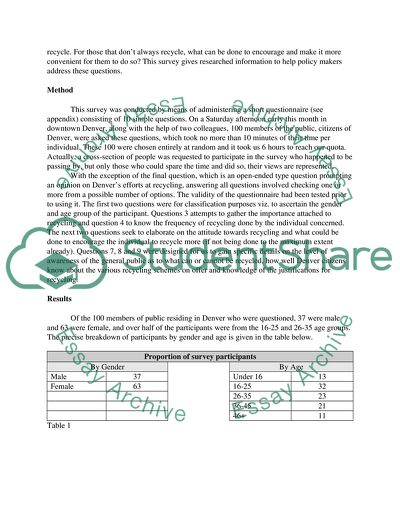Cite this document
(Recycling in Denver Survey: A Quantitative Research of Public Coursework, n.d.)
Recycling in Denver Survey: A Quantitative Research of Public Coursework. https://studentshare.org/environmental-studies/1723107-recycling-survey
Recycling in Denver Survey: A Quantitative Research of Public Coursework. https://studentshare.org/environmental-studies/1723107-recycling-survey
(Recycling in Denver Survey: A Quantitative Research of Public Coursework)
Recycling in Denver Survey: A Quantitative Research of Public Coursework. https://studentshare.org/environmental-studies/1723107-recycling-survey.
Recycling in Denver Survey: A Quantitative Research of Public Coursework. https://studentshare.org/environmental-studies/1723107-recycling-survey.
“Recycling in Denver Survey: A Quantitative Research of Public Coursework”. https://studentshare.org/environmental-studies/1723107-recycling-survey.


